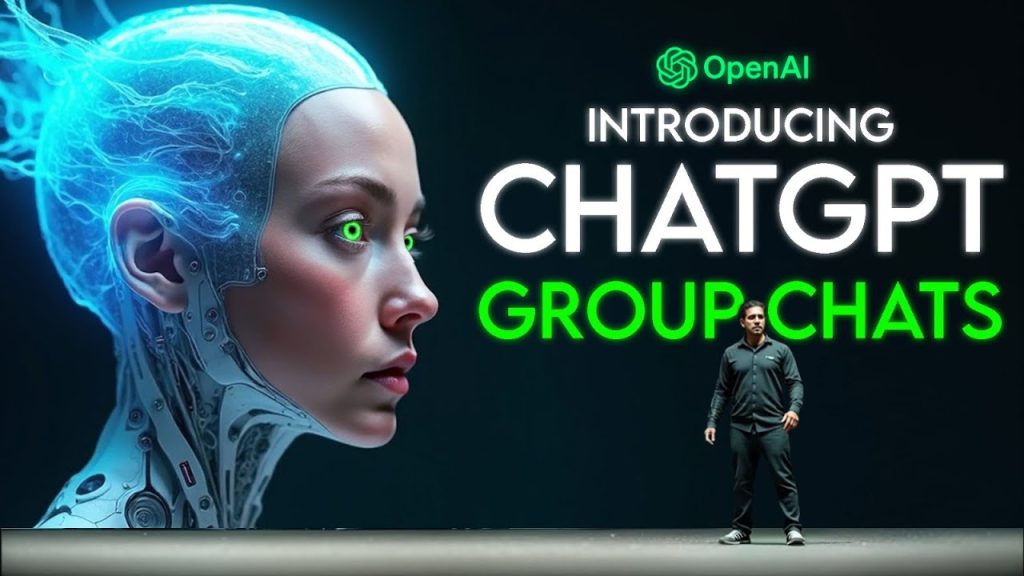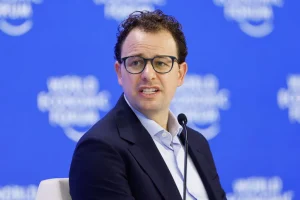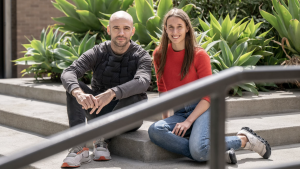OpenAI Unveils ChatGPT Group Conversations and New Health Application

OpenAI: Navigating Chaos and Innovation
OpenAI is currently in one of its most tumultuous yet intriguing phases, balancing rapid innovation with significant challenges. The organization is rolling out new tools and features at an unprecedented pace while contending with lawsuits, financial hurdles, and some unfortunate public relations incidents. This blend of progress and pressure is defining its current landscape.
The Rise of OpenAI’s Business Platform
Amidst these challenges, OpenAI recently announced it has surpassed 1 million business customers, establishing itself as the fastest-growing business platform in history. This impressive figure reflects the number of entities paying for ChatGPT for work or API access. Major corporations like Amgen, Cisco, Morgan Stanley, and T-Mobile are among the clients utilizing OpenAI’s technology.
ChatGPT for Work has also seen a significant increase in adoption, with over 7 million seats now in use—up a staggering 40% in just two months. The rapid integration of ChatGPT into workplace environments is hastened by users’ familiarity with the tool in their personal lives; this transition allows employees to adapt quickly, leading to immediate ROI.
New Productivity Tools
To support this growth, OpenAI has launched various new tools that enhance enterprise functionalities. One notable feature, “company knowledge,” allows ChatGPT to access and reason through internal tools such as Slack, Google Drive, and SharePoint. This functionality employs a version of GPT-5 optimized for tool use and citations, making collaboration more streamlined.
Additionally, the code generation model Codeex has seen a tenfold increase in usage since August, enabling companies like Cisco to cut code review times by half. With the introduction of “agent kit,” teams can deploy custom agents in mere days instead of months, further simplifying processes.
Facing Legal Challenges
Amidst its rapid growth, OpenAI encountered significant legal challenges, particularly in Germany. A Munich court recently ruled that OpenAI violated copyright laws by utilizing song lyrics without proper licenses for training its models. This case, initiated by GIMA—Germany’s leading music rights organization—underscored the legal and ethical complexities surrounding AI and copyright.
While OpenAI argued that its models learn patterns rather than memorize specific texts, the court determined that both internal and external reproductions counted as copyright infringement. This landmark ruling may set a precedent across Europe, impacting not just lyrics but all forms of creative content.
Public Relations Missteps
OpenAI’s public image has also been marred by comments made by its Chief Financial Officer, Sarah Frier. Her suggestion that U.S. taxpayers might support OpenAI’s substantial investments raised eyebrows and sparked outrage. Critics viewed it as a reckless expectation for public funding to back a private company’s financial commitments.
Frier attempted to clarify her remarks on LinkedIn, stating that her intention was to encourage governmental collaboration with private companies to bolster U.S. AI infrastructure, not to seek government guarantees for OpenAI’s loans. Nevertheless, the damage was done, leading to questions about the company’s financial strategy, especially given a reported loss of $12 billion last quarter.
Competing Challenges: Cash Burn and Market Competition
Despite its soaring growth, OpenAI struggles with a pressing cash burn issue. The launch of its AI video generator, Sora, reportedly costs the company around $5 billion annually, or roughly $15 million daily. While the application is currently limited in user access, the expenses it generates are already astronomical. OpenAI’s leadership has recognized the unsustainable nature of these costs, especially as the demand for resources skyrockets.
In comparison, its primary competitor, Anthropic, is taking a different approach and is projected to break even by 2028. Analysts note that while OpenAI anticipates substantial losses, Anthropic has focused on a more sustainable business model that emphasizes efficiency. By 2025, Anthropic’s API revenue is expected to double OpenAI’s, largely due to enterprise clients favoring a more stable and efficient option.
The Road Ahead: Is Rapid Expansion Sustainable?
As OpenAI continues to broaden its scope, the critical question arises: is this breakneck pace of expansion sustainable? While the company is at the forefront of technological innovation, it faces fundamental challenges in financial viability and public perception.
The potential for future growth remains strong, especially as AI integration becomes increasingly integral to various sectors, including healthcare and enterprise solutions. However, balancing this growth with careful financial and legal management will be crucial.
In summary, OpenAI’s journey is one laden with both remarkable achievements and significant setbacks. As the landscape of AI continues to evolve, it will be fascinating to see how OpenAI navigates these complexities, and whether it can retain its competitive edge while fostering responsible and sustainable innovation.
What’s your take on OpenAI’s trajectory? Feel free to share your thoughts in the comments below!
#OpenAI #Leaked #ChatGPT #Group #Chats #Health #App
Thanks for reaching. Please let us know your thoughts and ideas in the comment section.
Source link






I switched to Perplexity.
What’s interesting is that OpenAI is getting a lot of money from other AI companies to use Sora 2 in their products. I would think that this should offset some of the losses due to Sora 2 app users. 🕊️🫶
ChatGPT is the best
ummm you forgot to mention that openai already sent a letter to the white house asking for government loan guarantees. that letter was leaked a few days ago
Get Catherine Austin Fitts, Whitney Webb, Edward Snowden and Julian Assange into a group chat, add in Elon Musk, then top it off with Richard Dolan and Steven Greer for extra spicy fun, and let's see what ChatGPT will contribute. Adding in Gregg Braden and the Dalai Lama would make it even more interesting. LOL what a mix! Who else would you add? Tom Bilyeu? AJ from Why Files? Let me know. You could even run a simulation of all of these having a conversation, now that's an idea. Separate AIs having a discussion. Who would you add?
Stock up on popcorn and watch OpenAI and Anthropic race ahead. They are chasing a future that, as always, remains vague and mysterious.
one-point-four-dollar-trillion, me-people-no-are.
👍
How can they say the LLM repeats lyrics. You can ask Google search for any song lyrics in the world.
"20 dollars billion" eh? hmmmm…
Breaking news!
Google is going to crush the inference market over time, the economics and talent disparity make that obvious. They already have huge business lock-in with G-suite and their GCP, so Anthropic is going to be crushed between China on the bottom and Google on top. OpenAI knows the Inference business isn't a long term win and they're trying to build a wedge in consumer that plays on their huge MAU.